Sao Paulo(Arena de Sao Paulo)
The financial and business hub of Brazil, not only is Sao Paulo the biggest city in the country, it also ranks among the most populous in the world, with just over 11 million inhabitants within its area of 1,523 square kilometers (588 sq mi). Located in the south-eastern region of the country, it is nicknamed Terra da Garoa (Land of the Drizzle) after its renowned weather instability and plentiful rainfall.
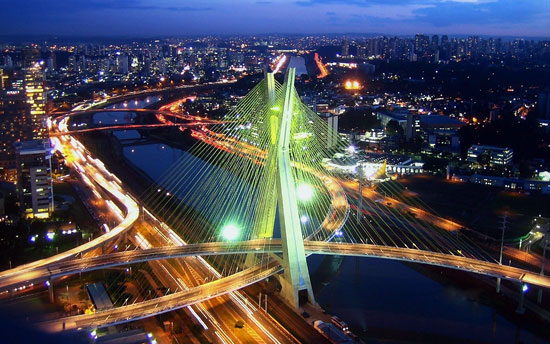
Sao Paulo's work-oriented vocation attracted huge contingents of immigrants after the turn of the 19th century. As a consequence, the capital of the state of Sao Paulo is by far the most ethnically diverse city in Brazil, hosting an estimated 100 different ethnicities that have helped put up the country's major economy, responsible for 12,26 per cent of the country's gross domestic product.
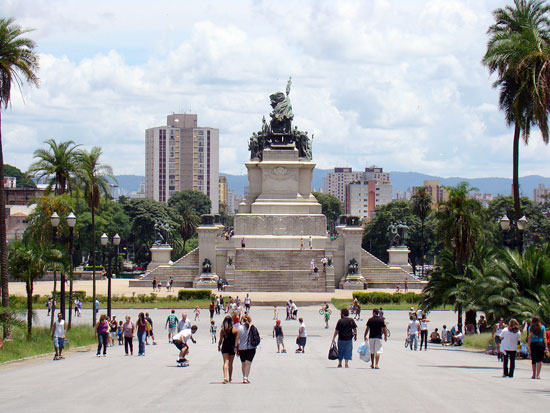
Although it is an inevitable business destination, it is not all about work for the paulistanos: Sao Paulo is a high-profile cultural centre that displays a wide range of options, from various top-flight concerts and exhibitions to a colossal gastronomy scene of more than 12,000 restaurants. Sampa is also bursting with tourist attractions that go way beyond its staggering skyline, such as the Japanese district of Liberdade, the Ibirapuera Park, the several high-profile shopping malls and a charming city centre.
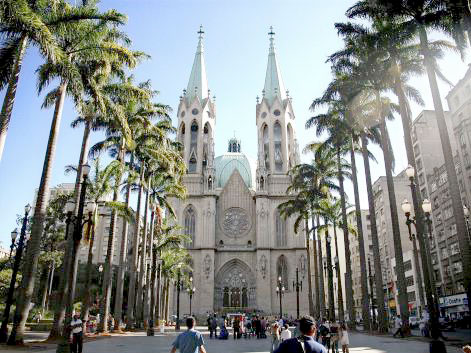
It is no wonder, then, that the metropolitan area of Sao Paulo is the home for the two busiest airports in South America: Congonhas and the international Andre Franco Montoro Airport - commonly known as Guarulhos Airport or Cumbica - which flies to 28 different countries.
Football
São Paulo is the very birthplace of Brazilian football, as it was the home of Charles Miller, the British descendent who presented the beautiful game to the city in 1894 and helped its swift propagation throughout the country.
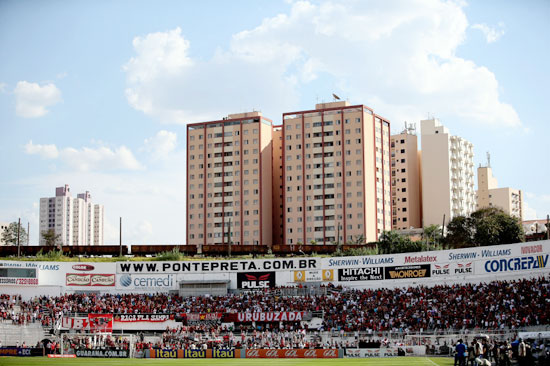
Three of Brazil's most powerful clubs are from Sao Paulo: old-time rivals Corinthians, Palmeiras and São Paulo, who combine for an impressive 14 Campeonato Brasileiro titles. Both Corinthians and Sao Paulo have lifted the FIFA Club World Club trophy, in 2000 and 2005 respectively. Other traditional clubs like Portuguesa de Desportos and Juventus complete the football-mad panorama of the metropolis.
Sao Paulo's home ground, the Morumbi, is the city's biggest stadium and was one of the venues of the maiden FIFA Club World Club, in 2000, while the city-owned Pacaembu, which also houses a phenomenal Football Museum, hosted six matches at the 1950 FIFA World Cup Brazil™. Palmeiras own its home ground, the Palestra Italia.
Owner: Corinthians Paulista (SP)
Capacity: 65807
Country: Brazil
City: Sao Paulo
Address: Rua São Jorge, 643 - Tatuapé, São Paulo - SP, 03087-000, Brazil
Value: About $370 million
Inauguration: 2014
Average temperature in June: 22°C
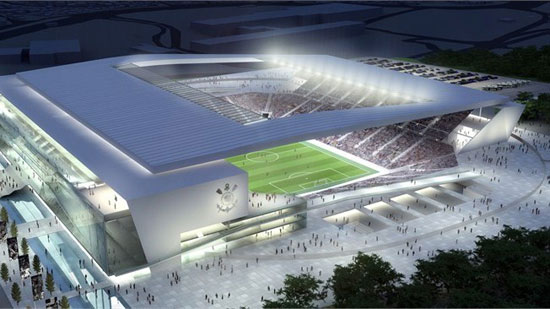
Profile:
Of the three biggest clubs in Sao Paulo, the only one which previously did not own a stadium with the necessary size and infrastructure to host games was the city’s best-supported side: Sport Club Corinthians Paulista.
Yet this long-yearned for dream of the Corinthians faithful will finally come true ahead of the 2014 FIFA World Cup™ in the shape of the Arena de Sao Paulo. Under construction in the neighbourhood of Itaquera, which is in the city’s Eastern Zone and a traditional Corintianos stronghold, the project is scheduled to be completed by early 2014.
The stadium works are also expected to boost development in the Eastern Zone, which is one of Sao Paulo’s most deprived areas and home to nearly four million people, as well as ensuring hundreds of workers gain professional qualifications. A total of close to 6,000 people will be employed either directly or indirectly over the course of the construction process.
The Arena de Sao Paulo has been chosen to host the Opening Match of Brazil 2014 and will also welcome five other encounters, including one semi-final.
Matches:
12/06/2014 17:00 Brazil vs. Croatia
19/06/2014 16:00 Uruguay vs. England
23/06/2014 13:00 Netherlands vs. Chile
26/06/2014 17:00 Korea Republic vs. Belgium
01/07/2014 13:00 Round of 16 1F vs. 2E
09/07/2014 17:00 Semi-final W59 vs. W60
Local hero:
Cafu and Roberto Carlos are among the numerous luminaries who honed their skills on São Paulo’s streets. But it was Arthur Friedenreich, the son of German/African immigrants, who broke through racial barriers at the start of the 20th century. Friedenreich was Brazil’s first black professional footballer.

Legends pay tribute to Gerrard & Lahm
International retirements follow Wo...
- Year
- Winner
- Runner-up
- Third place
